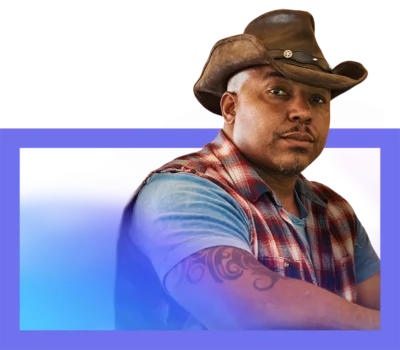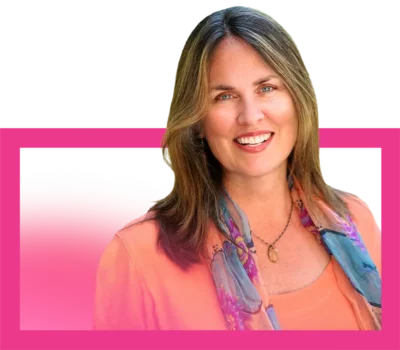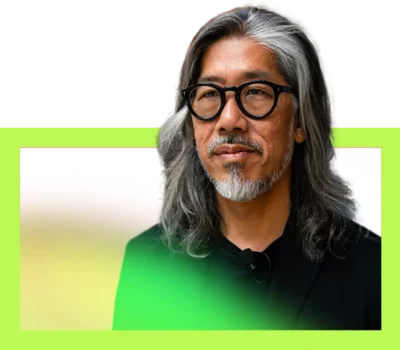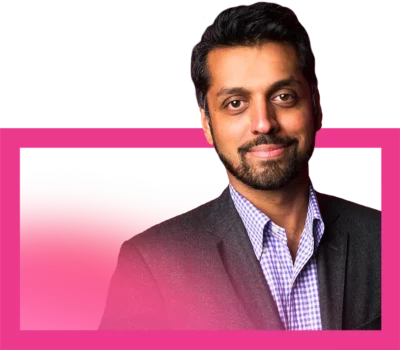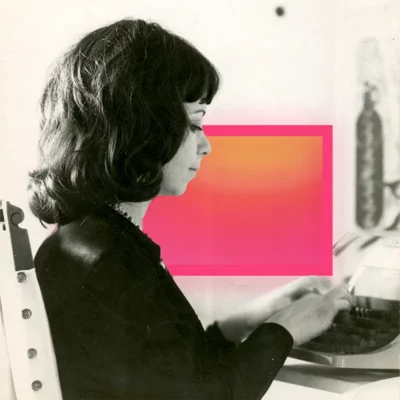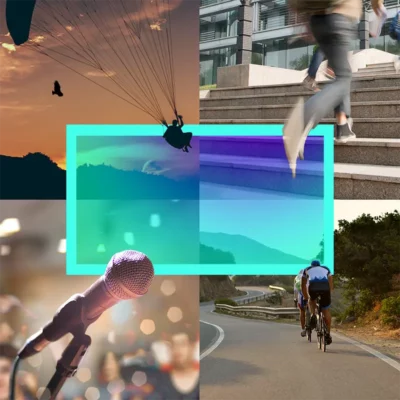Stories of faith, patience, resilience
Times like these require faith, patience, and resilience. This short episode brings together moments from four beloved stories. Sharing a pivotal moment from their lives, these four storytellers explore the large and small insights that helped them find balance and connection in uncertain times. You’ll hear from Wajahat Ali, Keith Yamashita, Judith Grisel, and Ghuan Featherstone, with gentle meditation breaks from our host, Rohan Gunatillake.
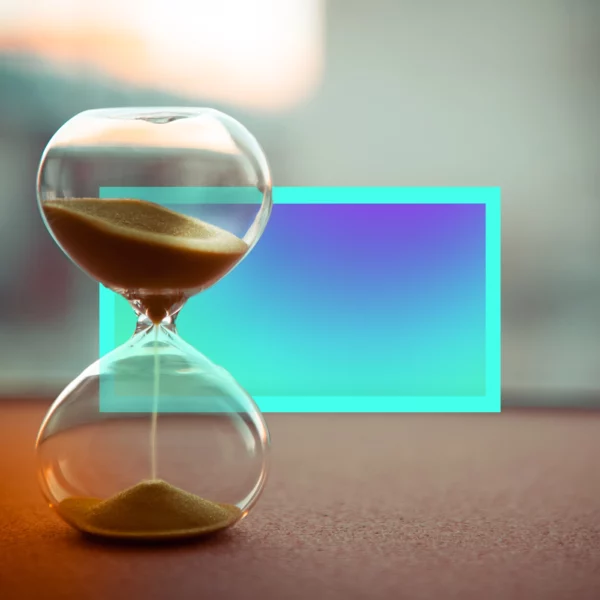
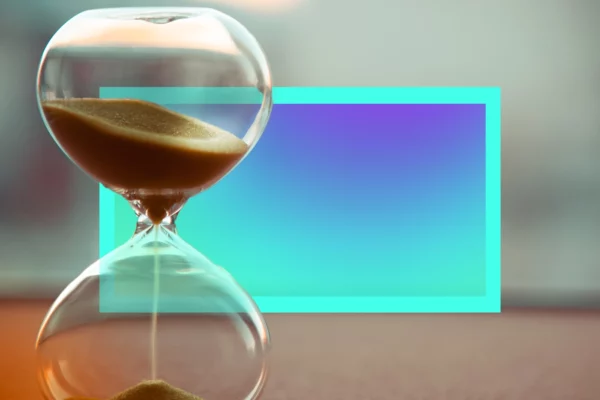
Transcript:
Stories of faith, patience, resilience
ROHAN GUNATILLAKE: Hello everyone. Rohan here, your host of Meditative Story. As we work with new storytellers for our upcoming season, which begins the first week of December, I’d love to offer you this look back at some of the best moments from Meditative Story since we created the series just over a year ago.
So take a few moments to settle in. Find a really comfortable position for yourself.
And I am going to call up a few short scenes from moments of Meditative Story that I’ve been thinking a lot about, especially in the context of such a seemingly impossible year of lives lost throughout the pandemic, racial strife, climate urgencies, and countless tests of human fortitude. Our friend Krista Tippett of the On Being podcast describes geniuses as people who “defy every prognosis of human decline.” I think of the extraordinary people who have shared a Meditative Story to be this kind of genius. Truth is, it’s a genius that lives in each of us – requiring faith, patience and resilience in tough times like these.
We’ll start with a Meditative Story from Wajahat Ali, a writer and public speaker whose perspectives are always shared with a balance of humor, vulnerability, and striking insight. You might remember that in his Meditative Story – #45 in the feed – Waj invites us on his family’s journey through the illness of his young daughter, an ordeal that forces Waj to balance faith and action, between exhausting his efforts and surrendering to the outcome.
The body relaxed. The body breathing. Your senses open. Your mind open. Meeting the world
WAJAHAT ALI: I wake up before the sound of my alarm to my phone ringing. I’m in Vancouver for work, alone in my hotel room. I hear the morning’s first birds. The sound is distinct but softened by the white noise of the hotel’s air conditioning. Daylight is just beginning to push its way in, seeping through the cracks of the curtains. I check the caller ID. It’s my wife.
Before I can even get the phone to my ear, I hear her sobbing, unable to get the words out. My wife is a doctor, very level-headed – both of us are. We are compatible that way. So to hear her so distraught isn’t just upsetting, it’s alarming. Something is terribly, dangerously wrong. She’s trying to explain but she can barely string together a coherent sentence.
“I found a bump on her stomach.” She’s talking about our little girl, Nusayba. “I took her to the hospital and they… they found bumps all over her liver. It’s not good,” she says, trying to catch her breath. “It’s not good.”
I ball my hand up into a fist and punch the pillow, yell ”No!” Instinctively, I offer a barter prayer: All right, God. My life for hers. Simple trade. Thirty-eight-year-old man, two-year-old girl. Let’s do this.
I’m committed to the barter even though I know I’m not going to get an answer. But alone, in my room, I still say the prayer. It’s my way of trying to make sense of what is ultimately a cruel, senseless event. Why would a two-year-old girl get cancer?
There’s an Arabic word, waswasa. It refers to those sneaky whispers in your head. The little devil on your shoulder that gives you the absolute worst advice, often at those times you most need a level head. Once it begins, you go to a very dark place, very quickly. Like, the golem place. In an instant I mentally and spiritually prepare myself for everything to go wrong. What happens if she dies? This is me burying my daughter. This is me telling my in-laws she passed away. This is me telling my family in Pakistan. This is me imagining my life after burying my daughter. This is me pretending to be happy and normal for the sake of my son.
It’s a way of avoiding reality, burying my head in the sand. But just as soon as I think it, I rein it back in. So how can I fight this? How does a person take on cancer? A father. How do I take control? A father is supposed to fix things. Like, that’s my job.
I want to absorb Nusayba’s pain. I want to believe it’s in my power to fix things. But of course, I’m not a doctor – much to my South Asian parents’ chagrin – and, to be honest, I don’t even have health insurance – my wife does, though, thank God. All I can do is try to make the ride easier for everyone around me. My daughter, my son, my wife, my parents.
There’s an Islamic proverb: Trust in God, but tie your camel first. Which means: exhaust all your efforts, do everything humanly possible and then let go of the reins. This is the mindset I force myself to assume. I owe it to my daughter to do everything I can, and only then can I surrender. “Okay,” I say out loud. “This is happening. And we will do whatever it takes. If we go down, we go down swinging. We go down swinging together. So Inshallah, let’s fight.”
GUNATILLAKE: If we go down, we go down swinging together. I certainly feel that way right now, and I bet so many of you do too, especially when you think about the stakes of such great human proportion happening at this time.
Do you remember the Meditative Story Keith Yamashita shared last year about building a life around cheating time, until the inevitable moment arrives when a stroke threatens to cheat him of his life? But rather than being defeated by it, Keith’s world unexpectedly expands – what he calls the second chapter. Look for episode #18 in the feed if you’d like to hear it again.
KEITH YAMASHITA: In the midst of my recovery, I meet with an osteopath. I’m lying down on the examination table. My eyes are closed. His hands are cradling my neck and back of my head. He asks me to visualize a light source in my body. To make it easy, he says, “Just make it a light bulb. Okay, take that light. What wattage is that light bulb?”
“It’s a hundred-watt bulb,” I answer.
“Light bulbs also have dimmers. Is it up? Down?”
“It’s full on.”
“What wattage would it need to be to light up everyone in your life?,” he asks.
“A thousand-watt bulb.” I respond.
“Why would you stop at a thousand-watt bulb?”
“I don’t know… Fine! An infinite-watt bulb.”
“Okay, turn the bulb in your mind into an infinite-watt bulb.”
His hands are on the back of my neck. I’m trying to turn up this light in my mind’s eye, and it’s really hard. I’m trying, and trying, and trying, and I’m not able to light it up to that level of intensity. And then, all of a sudden, it’s as if there’s this profound explosion of light. I feel it at a cellular level.
One one-millionth of a millisecond into that feeling, my doctor says, “Yes. Exactly like that. That’s the power you have always had,” he says. “You just don’t know how to control it. And that luminescence is you, and that’s what you are in everyone’s life. It’s time you learn how to harness it in a way that doesn’t exhaust you.”
All this time, I thought my recovery was about getting my face back. Getting my speech back. Getting my brain back. As I lie here, at the beginning of the second sentence of my life, I start to realize this isn’t a medical recovery. This is a spiritual awakening.
My story, your story, any story – really it’s about the images we put into our mind’s eye. Do they nourish, or do they harm? I have been very actively shaping the images that I permit to enter my mind. I try to visualize being whole. I’m lying on my back, I am far at sea. It’s night. There are no stars. There are only clouds. When I turn my head there is no shore to be seen. The gentle swells of the ocean feel like the Earth breathing. And I am held.
I see myself from above. The farther I move out on the scene, I realize how small I am compared with the vastness of everything else. This is renewal: To know that I am held, but not at all in control. I don’t know what’s going to happen next. But it is about coming to love that mystery. I don’t know why, but I feel safe.
And this is where my story begins.
GUNATILLAKE: I draw on Keith’s Meditative Story because it so vividly reminds me that our minds throw illusions. We give them a harmless name – “thoughts.” But too often they cost loads of personal suffering. They appear in our consciousness without our control, and sabotage our ability to feel at ease with the now – whatever its. Keith reminds us that we can quite literally change our minds by paying attention to our thoughts, and by learning to have better conversations with ourselves.
Another Meditative Story I’m so happy to revisit is from Judith Grisel, the behavioral neuroscientist and TED speaker known for her research on the role of the brain in drug addiction. In her Mediative Story – # 40 in the feed – she unlocks a beautiful way to protect ourselves from the fear of falling short on expectation, whether these are self-imposed mindsets or the needs that others project onto us. The answer she tells us is “just this.” Take in this scene from Judith’s Meditative Story, and at the end, I’m going to pause for 10 seconds. During that quiet moment, please bring to mind expectations that are burdening you, and quietly, or out loud if you’d like, tell yourself “just this.”
JUDITH GRISEL: In my first few years of sobriety I have this sort of superficial fullness. But I keep going. My strategy is to plow right through, keep myself excessively busy with deadlines and urgencies. I look well. I’m earning my PhD. I have skills. I can roll a kayak, I am a decent skier, and… I am a complete mess. I console myself with plane tickets and ice cream. I watch the dahlias coming up in my yard, and I try to convince myself: something’s gonna happen. But still, I feel empty.
I’m in graduate school in Boulder, and I’m desperate for a solution to this feeling. I seek out mentors and teachers. Like wild Sister Ansela. She looks about 190, and walks with me stooped to 90 degrees. This makes her always stare at the ground as she repeats over and over the same three tedious words in response to any and every question I ask her: “It’s a mystery.”
This makes me so angry! But I also think: Yeah, but I am still drawn to keep coming back to hear her say it.
The Quaker meeting I attend is at the other end of town and 30 minutes by bike. The building is very non-descript. I grew up in Catholic churches, so this? It isn’t beautiful. But I am absolutely fascinated by the fact that no one’s in charge. No one’s up at the front with all the answers in a Quaker meeting house. I love that nobody has authority here, which means there is no one to argue with.
The pews are arranged in a circle, with an empty space in the middle. There is a window across the room, and I sit to look out, with my back to the wall. It’s quiet. Occasionally, people stand up and voice whatever is on their minds, maybe read a poem, or tell a story, or mutter things that no one seems to understand. But mostly it’s quiet. Quiet and without pretense – and both suit me.
I haven’t made any friends here. I arrive late and leave early. But today something extraordinary happens.
As I take a seat, I return to the question I keep asking myself over and over: What should I do with my life? Who should I be? These questions gnaw at me. I’m desperate for an answer. And suddenly a voice, as clear and as coherent as I am, right now, says to me: “Just this. You’re doing it.”
All of the oxygen leaves me. Whatever it is I had hoped might answer me, I’m not prepared for this. It offers no plan, no direction, no comfort, no security. It does not tell me to please anybody, or to be anybody. It involves no degree or achievement. And it’s the last thing I expect to hear. I expect the answers to my questions to come as sort of a color brochure, something with clear instructions to do this, be that. But what I get is not that. And not that, somehow is just right.
If I had just heard the voice and not felt the peace, I wouldn’t have believed it, but I’m suddenly and completely filled with peace. It’s as if I’ve gone skydiving and, jumping out of the plane, suddenly realize that I don’t have a parachute… but after a bit I realize there’s no ground. Like, even though I’m falling – even though I feel completely lacking in every way – there is nothing wrong with that. There is nothing to be concerned about.
GUNATILLAKE: Our last Meditative Story in this between-season look back is from Ghuan Featherstone. It’s episode #50 in the feed if you’d like to listen again.
Born and raised in South Central, Los Angeles, a neighborhood rife with gang violence and drugs, Ghuan is determined to go his own way. In part inspired by the cowboy shows he watched on TV as a boy, Ghuan learns to ride horses at a small stable in South Central – and it changes his life forever. If you remember this Meditative Story, think again about what happens when Ghuan first gets on a horse, and how this magical act of communion shapes the way he views his role in his community, and in the world.
The rough LA neighborhoods Ghuan successfully emerges from paint a bigger picture of how we can create a more just world for those living in the margins. I hope this Meditative Story sticks with you, and gives you something to hold onto through chaotic moments that might be ahead of us – in America and elsewhere. We can solve this. We will solve this.
GHUAN FEATHERSTONE: It ain’t easy being Black anywhere, but it’s better than I remember back home. LA has its own rules – how you deal and interact with people. You got the gangs. You got racism. Cops. Some of my old friends are dead. Others in jail. And those who aren’t, they’re strung out. I don’t want to be around anybody here, and I miss Berlin.
Then somebody rear-ends me in mom’s car, so I prolong my ticket to get all that handled. Weeks turn into months. I pick up some work in construction. I feel stuck. I fall into depression.
One day, I run into my old high school sweetheart. We start spending some time together. I open up to her about how I’m feeling – what my childhood was like, my passion for cowboys and the code. About my time in the service, my hope to do good. I tell her I feel a bit lost, like I can’t see what comes next for me.
And that’s when she tells me about The Hill, stables in the middle of LA where Black and latino cowboys ride their horses and learn rodeo. Some of her own family go riding at the stables. “They’re cowboys!” she tells me.
I say, “Nah, can’t be no horses up here in South LA.”
I drive down the main street in search of The Hill to see for myself. All I see is an industrial area. But after I turn on 131st St., the city blocks open up into fields.
The Hill sits on maybe three acres of land. Palm trees standing in sand and peat gravel, surrounded by warehouses, stables on either side of an alley running through the center of the property. And sure enough, dozens of horses. And a bunch of Black folk riding them.
How do I not know about this place? I feel like a little kid again, waking up on the set of my favorite TV show.
At the far end of the stables, there’s a makeshift saloon, decked out like in the old Westerns. I see a bunch of folks chilling, playing cards, the dominoes. Down the way an old man cooks out of a makeshift shed. He goes by the name of Chicken Wing, and makes some of the best chicken wings ever. Popeye’s who? Nah, you don’t want to go to no Popeye’s after messing with Chicken Wing.
A few guys come up to greet me. They’re Black, dressed like cowboys. I see Ray, who wears the classic bad guy vest, black with tassles and silver buttons. I’m like, “You ride these horses? How does it work?” So they style up a horse that’s nice and tame and help me on. She’s jet-black with a long mane and tail that almost drags the ground. She isn’t really big, kinda skinny, but mild and beautiful. Her name is Ashanti. I don’t know what I’m doing, but the fellas, they tell me how to hold the reins, how to turn this way and that way. I’m a cowboy.
I start coming down to The Hill every day, clean Ashanti like they showed me. I take her out to a fenced in enclosure on the grounds, where I ride in circles, I build up my confidence.
But this morning the stable hand tells me, “Oh no, we got another horse for you today. Don’t worry.”
As soon as I throw my leg on, the horse bucks, and I hold on. Then she throws me to the ground. I hear their laughter all around me.
“I guess that’s it for you, huh cowboy?” and I’m like “Uh uh, nah, hold the reins.” I hop back on. She throws me off again. Off, on. Off, on. Now she’s up on her hind legs, but I hold tight. I act as if I got no fear. I shush her, pat her on her neck, and eventually she calms down. I lean forward and whisper in her ears, “Okay girl, are we ready now?”
I feel her relax beneath me. All her tension evaporates. Mine, too. She and I, we connect. We communicate. This experience changes my life forever.
GUNATILLAKE: Thank you Wajahat, Keith, Judith, and Ghuan … and you. Body relaxed, breath long, and jaw soft. Let me ask you a question. Which of all the scenes from these Meditative Stories that you’ve heard, possibly for a 2nd or 3rd time, is most here with you now? Which one resonates with you the most?. Acknowledge that. Feel that. Appreciate that.
I’ll be back for one more between-season look back – giving us just enough time to prepare this next season for you, which is shaping up to be the best one yet. From here in Glasgow, Scotland and on behalf of our team in New York, thank you for listening. If you are moved to leave a review for us, we’d really appreciate it. We read them all, and it’s the kind words from you that make this entire project worthwhile.

